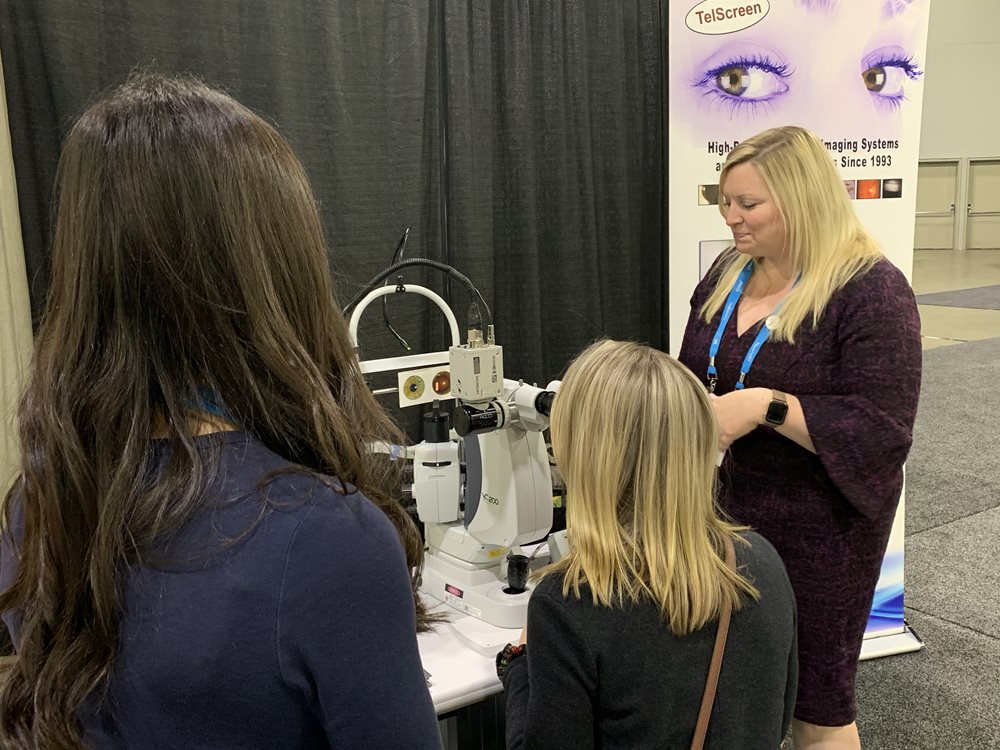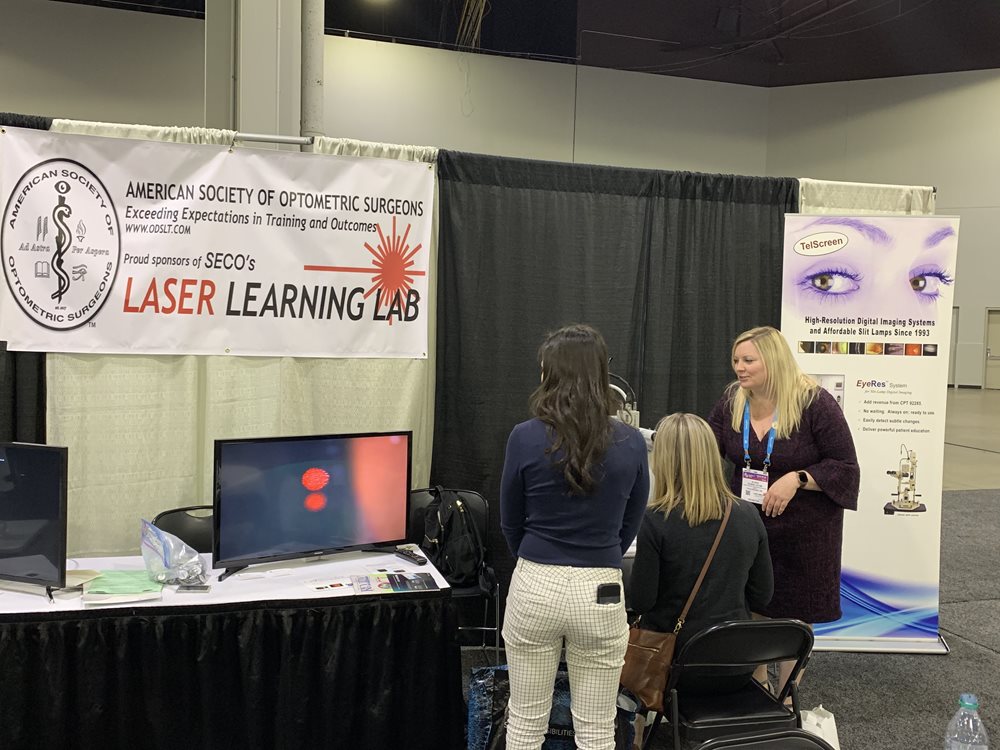Faculty Focus: Dr. Alissa Coyne
Alissa Coyne, OD, has always considered herself a “Pennsylvania girl” through and through. She grew up in Pennsylvania, went to Penn State University for undergrad, and then when she applied for optometry school, the only one she considered was the Pennsylvania College of Optometry (PCO).
After graduation, Dr. Coyne completed her residency at The Eye Institute (TEI), PCO’s main clinical facility. And, when it was time for her to start her career and follow her path in the world, that “Pennsylvania girl” never really left.

“When it came time for me to figure out at the end of residency what I was going to do, the thought of leaving . . . I just couldn’t get past that,” she said. “It really had to do with utilizing my experience through PCO and the residency, practicing at the edge of scope of our practice and feeling comfortable with some of these advanced ocular disease cases.”
Dr. Coyne became a full-time consultant for PCO for about a year and a half while working as an optometrist at a private practice in Philadelphia. She was then brought on to the PCO faculty in 2013. She teaches ocular pharmacology, lasers and minor surgical procedures.
“That is when I really developed an interest in advanced procedures and minor surgical procedures, when I was asked to assist in our laser lab,” said Dr. Coyne, who also sees patients in the primary care and emergency services at TEI. While optometrists cannot perform laser procedures in Pennsylvania, the program has students from states where laser and minor surgical procedures are performed by optometrists. Interacting with doctors from other states where optometrists could perform laser surgeries only grew Dr. Coyne’s interest in, and passion for, lasers.
“One of the many joys I get out of teaching in our third-year class is when they sit down in front of the laser and they think that it’s so cool and end up having this positive experience,” said Dr. Coyne. “This is something we teach. It’s building on top of other skills they already have. And, we have students who go back to other states where they can utilize these skills. I personally believe this will be one of the future specialties within optometric medicine.”
When she’s not teaching PCO students, Dr. Coyne is always reading. She keeps abreast of the latest medical developments and is very much into current events, checking multiple sources during the day for the latest news. All of that reading helps her stay on top of her game as an educator.
 “The students demand the most out of you. They’re paying a lot for you to help educate them and they ask terrific questions and you really have to be not just one step ahead of them but eight or nine steps ahead of them,” she said. “It forces you to be a better clinician and forces you to stay up-to-date on contemporary optometric medicine and all the changes that are occurring.”
“The students demand the most out of you. They’re paying a lot for you to help educate them and they ask terrific questions and you really have to be not just one step ahead of them but eight or nine steps ahead of them,” she said. “It forces you to be a better clinician and forces you to stay up-to-date on contemporary optometric medicine and all the changes that are occurring.”
She also likes to hang out with friends, many of whom are her co-workers at PCO. “They’re so intelligent, they’re so well-rounded. But they’re also good people. We don’t always have to talk about eyeballs and work. There’s always something interesting and everyone has a different passion or interest outside of work. It’s a different type of adult friendship. It makes me happy to go to work every day,” she said.
Dr. Coyne is also currently enrolled in a master’s program in pharmacology and toxicology at Michigan State University. She typically likes to take two courses a semester, ones that correspond with teaching ocular pharmacology, for example.
The bottom line, Dr. Coyne said, is that she really loves her job.“I’m fortunate. I like that I have lab, I like that I have lecture and I like that I have patient care,” she said. “I know I’m going to end up having a great time with the students. Seeing the lightbulb go off in them is always a good moment for me.”